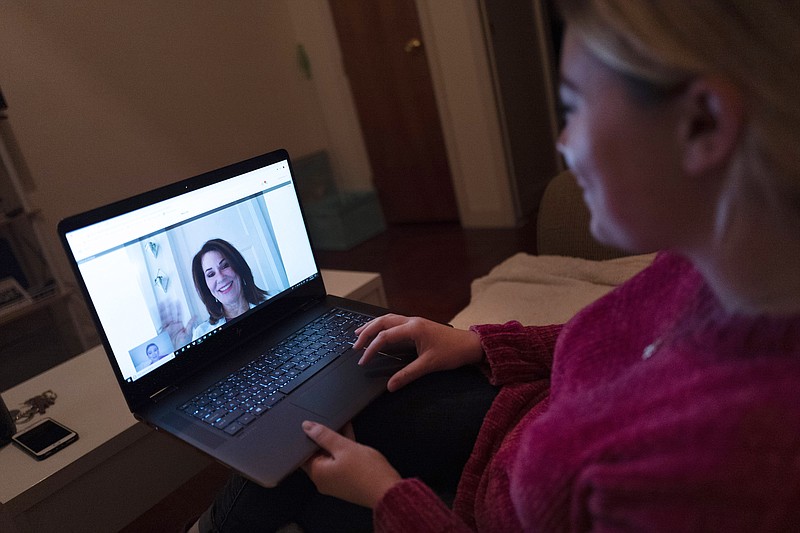As the coronavirus pandemic continues, feelings of isolation and uncertainty can increase pre-existing mental health conditions like anxiety and depression.
To keep connected, therapists and psychiatrists in Jefferson City have adjusted the services they provide to patients from in person visits to virtual, remote meetings.
Heather Johns, a licensed clinical social worker and manager at Capital Region Center for Mental Wellness, said the center already offered what they call "televisits," but the frequency has shot up since stay-at-home orders were put in place in late March.
"We've been doing this for a couple years, so we had a little bit of a head start," Johns said. "The problem was most insurance companies didn't approve this before, so we were limited on who we could offer this service to because of insurance."
Johns said policies have been adjusted due to the public health emergency to allow more patients access to the televisits.
The word "televisits," which her office uses, can be misleading for some patients, Johns said. The term comes from their electronic medical records service, which they use for the virtual visits to keep them confidential and HIPPA-compliant.
"That's confusing to people when we call patients and say we can offer it as a 'televisit.' Sometimes they think it's going to be audio only, like a telephone," Johns said. "But it's actually a virtual visit - I can see the patient, and they can see me."
With increased access to televisits and orders to venture outside of homes only for essential services, Johns' office has seen a jump in use of the service.
Seeking health care is considered an essential activity under the stay-at-home order, so the Center for Mental Wellness is still able to see patients in person when needed. But numbers have shifted.
Last Monday, there were 70 patients scheduled. Just 10 percent were scheduled to be seen in person.
For some, like area resident Tiffany Schaffer, having access to mental health services is a necessity. Schaffer uses Compass Health for therapy and psychiatry services.
So far, Schaffer has had phone call appointments with her therapist and video chat with her psychiatrist.
"It may just be a matter of doing things virtually, but it is still beneficial for a lot of people in different ways," Schaffer said. "When it all started, I really thought I wouldn't be able to have access to them, so I just canceled my appointments and hoped for the best."
However, staying in touch with mental health professionals, especially psychiatrists, is important for those on medications to help with their mental health.
"I have changed mine a lot, so I need those appointments to make sure we all agree it's helping or not helping," Schaffer said.
Although she's been glad to have access, remote therapy has its disadvantages for Schaffer, stemming from the lack of in-person conversation.
"When I am in person, they can physically see how I am doing that day - jittery, fidgety, all those things," Schaffer said. "It's nice for them to be able to already see how my emotions are when I walk in, rather than have to explain them over the call. With the therapy being over phone calls lately, it's been hard to express my feelings because she doesn't see those facial features. She just hears my voice."
Remote counseling can have some benefits, Johns said, especially for younger patients who are able to have appointments from their own space.
"I didn't know how it would be with some age groups, how it would go, but it's actually gone really, really well because kids are super excited to share," Johns said. "If they have a family pet, they want to show you the pet. I get to see a side of them I wouldn't get to see in my office traditionally."
Johns said having access to therapy during this time is increasingly important.
"At this time, they're even more isolated. I talked to people who haven't left their house in three to four weeks unless it's to pick up groceries, so they already were struggling with depression and then being that isolated," Johns said. "Maybe some of them have family members they stay connected with by phone, but we may be their only support. They may not have any resources."
Especially as the pandemic closes businesses and causes layoffs, people can become more stressed or depressed. Johns said they've been seeing some patients more frequently.
"Some people we've increased support - like if we were to see them twice a month, we may be seeing them weekly now just because we're maybe the only support they have, and the anxiety is higher because of their fear around being sick or loss of job or finances," Johns said. "Those stressors have increased, which has also increased their symptoms, which requires more support."

